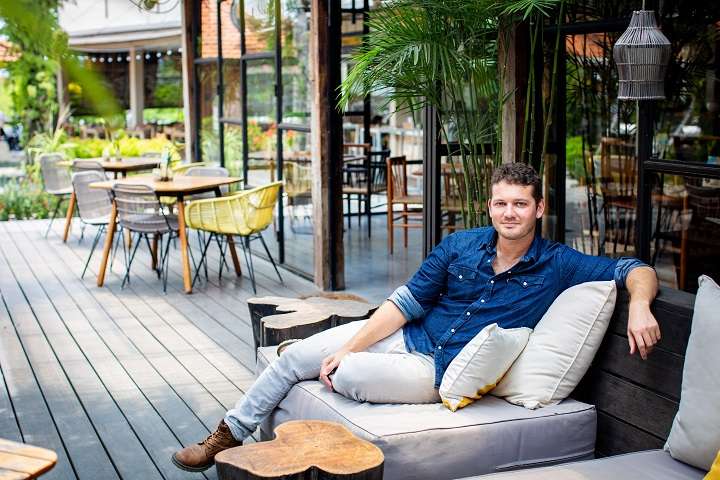Auckland land prices driven up by developers are stymying an entrepreneur's tiny village dream.
The tiny house community announced by developer and entrepreneur Kyron Gosse in February on the site of the former Muriwai campground on Auckland’s west coast has been curtailed by Covid – and zoning regulations.
“The site needs to be zoned for multiple dwellings or mixed housing to allow a tiny house community to live there permanently," Gosses told OneRoof.
Gosse had planned to put the tiny houses on wheels in campgrounds. They would be owned by the residents, using a form of co-tiny housing, and would allow owners to build their own house to live in permanently.
Start your property search
But after a six-week pause through Covid lockdown, he told OneRoof he was in shock and – like many – had changed his plan.
The multiple dwelling zoning he had been targeting has also proved popular with developers, who are paying whopping prices for land with the intention of bowling the houses that sit on them and replacing them with more homes. Gosse said he could not compete.

Aucklander Kyron Gosse is setting up a tiny house community in Muriwai. Photo/ Supplied.
“We spent a bit of time and money to try and figure out how people can live there permanently but it became very obvious that it’s not going to be feasible there," he said.
Despite not being able to set up a permanent tiny house community in Muriwai, Gosse had a fall-back plan of running a tiny house holiday park on the same premises.
Opening dates for the Muriwai Micro-Collective have been pushed out from spring this year to mid-2021. The biggest change to Gosse’s plan is that now, under the campground rules, owners of the 18 sites may not live there permanently, as regulations limit stays to just 50 continuous days in the campground.
Site owners are co-owner of the campground with license to occupy, sharing capital gains, dividends and voting rights. They can either bring an already constructed tiny home into their personal 53 q m site, or build it from scratch on site.
Owners can rent out their sites when they are away from home under a rental pool arrangement with Go Tiny, Gosse's tiny house community website. “We’re lucky that the vendors really see the vision and are happy to make it a reality with us,” he said.
When they come to sell their sites, Gosse said the tiny house owners would get capital gain associated with the land they purchase. They can decide to either use it as their own holiday accommodation or rent it out short term, he adds.
Gosse said he’s already had people on board but was looking for more to join the community as long and the tiny house is “safe and looks good”.
He expects well-built tiny houses to become an attraction for those who want to work remotely and while enjoying wild surroundings.
“Muriwai has a complete lack of infrastructure for tourists to stay there and for people who’ve always been interested in tiny houses to come out and experience it.”
Gosse lives in Auckland in a 30sq m house he calls a tiny mansion, and he and his partner plan to spend plenty of time in Muriwai once the development is complete. "We’re building a community around us - we want to be able to live and work with inspiring entrepreneurs and businesspeople.”
He expects co-living/co-housing to become even bigger than co-working, and is aiming his development at digital workers who can travel the country living and working from their vans or tiny houses on wheels. He has more developments in the works after the Muriwai community launches.










